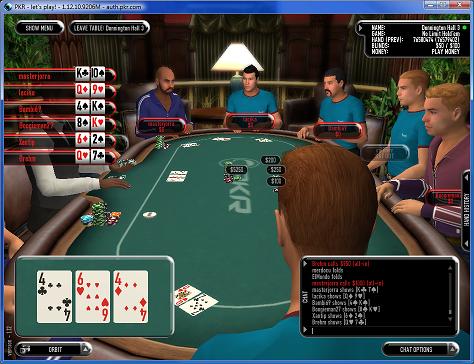Even by the standards of one of Britain’s fastest-growing industries, the rise of PKR was meteoric.
Britain’s online gambling sector is now worth £4.5 billion a year, but a decade ago it was in its infancy – and PKR rapidly emerged as one of its brightest stars.
Founded in 2006, PKR carved a swathe through the sector by using bigger and better graphics than any of its rivals, alongside some sexy, snappy marketing.
A series of tech firsts meant it was always in the limelight and ahead of its competition. First came 3D graphics, then virtual reality, then avatars – which allowed players to put digital versions of themselves into the game – complete with their own facial expressions and movements.
By 2012 the company had five million registered users, and at times it could boast of 15,000 people playing simultaneously.
PKR’s success allowed it to splash out on glossy TV commercials, and it rode the wave of a global poker boom.
Missed warning signs
Perhaps the first indication that all was not well came not from the company itself but its rivals. Before long PKR was facing a growing number of well-funded and ambitious competitors, but none of them sought to copy its graphic-heavy, virtual reality approach.
Instead its rivals eschewed 3D – a format which works well on a computer screen but can struggle on a mobile device – and focused on simpler gameplay.
PKR responded by adding more and more complexity to its offering. But it missed the warning sign here – the novelty of 3D would only go so far and regular poker players wanted less, not more, fancy gameplay.
Customer gripes ignored
It is unclear how seriously PKR was taking grumbles from its players.
Users regularly took to online forums to moan about PKR’s speed, responsiveness and functionality.
By 2016 the brand was in serious trouble as thousands of users deserted it for the competition. PKR decided it could not be a standalone poker room and surrendered its independence by joining up with a rival, the Microgaming Poker Network (MPN).
With the MPN populated by many hardcore players, the more casual, recreational poker player, who would typically enjoy the bells and whistles of the VR experience, was suddenly out of their depth.
By May 2017 the PKR site was shut down and the administrators called in.
Beware tech blindness
From the start, PKR’s technological edge won it accolades and fans, allowing it to steal a march on its rivals and grow aggressively.
But that early success blinded it to its customers’ changing tastes. When rivals lured away users with simpler, cleaner and more mobile-friendly platforms, PKR’s response was to add, not remove, complexity.
It’s a familiar story in the technology sector, with echoes of the downfall of Nokia. The Finnish mobile phone giant took an early lead but became blinkered by its own technology – and got left behind after it failed to spot how customer tastes had moved on with the smartphone revolution.
But any business can learn from this tale. Whether a brand differentiates itself from the competition by adopting better technology or just a better way of doing things, it must never lose sight of the key question – what do its customers want, and can it adapt to meet their needs?
PKR’s technological edge defined it, but ultimately trapped it. It became rigid and hidebound, and the technology that had once looked so futuristic no longer cut through as player tastes evolved.
Differentiation is great but so too is agility and the willingness to listen to customers. Any business that forgets this does so at its peril.
Luke Page is chief editor of the independent online casino guide Casinopedia.






